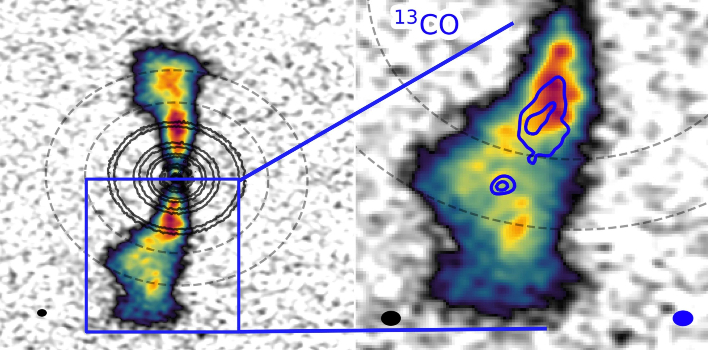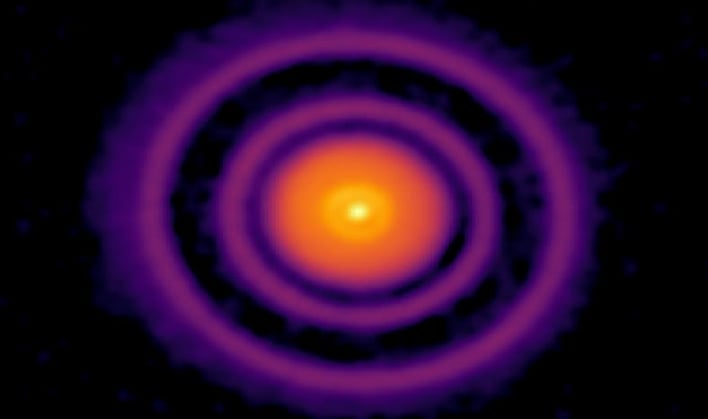Astronomers May Have Found The Youngest Known Planet In The Galaxy Orbiting A Juvenile Star

Research recently published in The Astrophysical Journal Letters using the Atacama Large Millimeter/submillimeter Array (ALMA) to study planet formation details findings of the first-ever detection of gas in a circumplanetary disk. What makes this even more exciting is that it could mean there is a very young exoplanet within the constellation it was found.
During a study of AS 209, a young star located nearly 395 light-years away from Earth, astronomers detected a "blob of emitted light" in the midst of an otherwise empty gap in the gas encompassing the star. That discovery led to the finding of a circumplanetary disk surrounding a potential Jupiter-mass planet. The team hopes that future observations by the James Webb Space Telescope (JWST) can reveal more data about the young star and possibility of an exoplanet.

"The best way to study planet formation is to observe planets while they're forming. We are living in a very exciting time when this happens thanks to powerful-telescopes, such as ALMA and JWST," remarked Jaehan Bae, a professor of astronomy at the University of Florida and the lead author of the paper.

The team of researchers are paying close attention to the system, because of the planet's distance from its star and the star's age. The suspected exoplanet resides more than 200 astronomical units, or roughly 18.59 billion miles from the host star. The vast distance challenges currently accepted theories of planet formation. However, if the age of the young star is correct, the exoplanet could be one of the youngest planets ever observed.
Top Image Credit: Julio Perez from Pexels

